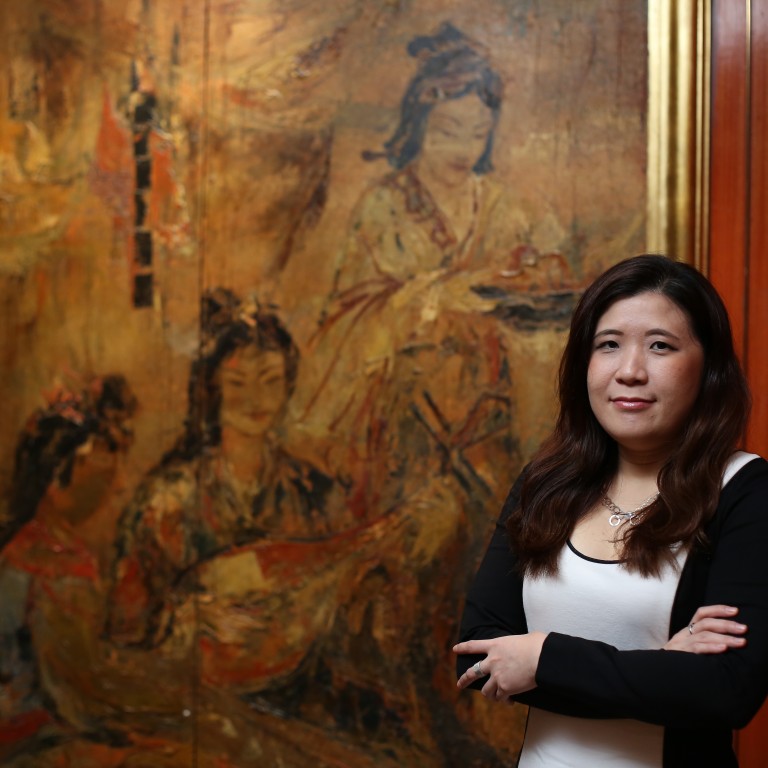
Why more investors are letting private banks decide what to do with their money
High-net-worth clients are increasingly choosing to let their private banks decide their investment strategies amid rising stock volatility
Market uncertainties are encouraging more and more investors to allow their private banks to decide their investment strategies.
Tan Wei-mei, director and head of portfolio solutions of Asia Pacific of Credit Suisse Private Banking, said her bank had seen a 200 per cent year-on-year increase in "mandates" - the private banking term for the funds clients entrust banks to invest at their own discretion - in the first half of this year and a 50 per cent year-on-year growth in mandate assets under management.
That compares with the annual growth rate of 10 per cent to 20 per cent in mandates in the past five years.
The key driver of the strong growth this year, she said, was a combination of market environment, the changing investment behaviour of the clients and the bank's almost doubling of its portfolio solutions team in Asia in the past year.
"As equity markets became more volatile this year, we have seen more high-net-worth clients opting for mandate solutions," Tan said.
"With the ageing demographics in Asia, we also see more clients who have retired and want to spend more time on the golf course rather than trading in the financial markets," she added.
"They allow us to establish an investment strategy for them and delegate portfolio management to us."
The Swiss wealth manager only offered discretionary and advisory mandate solutions for its private clients who have more than US$1 million with the bank, she added.
Tan said these clients did not give the bank a complete free hand with their money but laid down their broad investment goals before giving the bank the mandate.
"At the beginning of the year, we had some clients who preferred equity-centric strategies. But the recent market rout led to a change in approach and we are seeing more interest in balanced portfolios now," she said.
The bank's global balanced portfolio invested 42.5 per cent in equities, 32.5 per cent in fixed income, 20 per cent in alternative investments and 5 per cent in cash, she added.
Another common condition laid down by clients is that banks ensure their investment portfolios provide a regular cash payout so that they have sufficient liquidity on hand.
"We invest in a variety of instruments including investment-grade bonds, high-yield bonds, real estate investment trusts (reits) and dividend-paying stocks to provide regular income for our clients, and ensure the coupons and dividend distributions are automatically paid out from the discretionary mandate," she said.
Christopher Cheung Wah-fung, lawmaker for the financial services sector, said there were some investors who also wanted to hand over discretionary portfolios to brokers.
"However, since the Securities and Futures Commission has very tight regulation on the kind of discretionary services brokers can offer, many brokers only offer mandate services for select clients," Cheung said.
Tan said that as the number of millionaires had been growing in Asia and clients were increasingly adopting a more structured strategic approach to investment and asset allocation, the mandate investment business should see strong growth potential in the years ahead.
The Asia-Pacific region had 4.69 million high-net-worth clients as of the end of last year - up 8.5 per cent from the previous year - already surpassing North America's 4.68 million, according to the World Wealth Report published by Capgemini and RBC Wealth Management on Tuesday.
Last year alone, China saw the number of high-net-worth individuals grow 17.5 per cent to 890,000, with their wealth rising 19.3 per cent to US$4.5 trillion.
The World Wealth Report showed these clients are conservative investors, with 23.1 per cent of their investment being held in cash - the largest component - followed by 22.8 per cent in equities and 21.4 per cent in real estate.
But Tan said holding cash was never a good option.
"In a relatively low interest rate environment, which is expected to remain at least for the next one to two years, investors are getting minimal returns from cash holdings.
"Our clients are recommended to remain invested via well-diversified balanced portfolios and in addition have the benefit of obtaining cash payouts from coupons and dividends from their discretionary mandates," she said.

